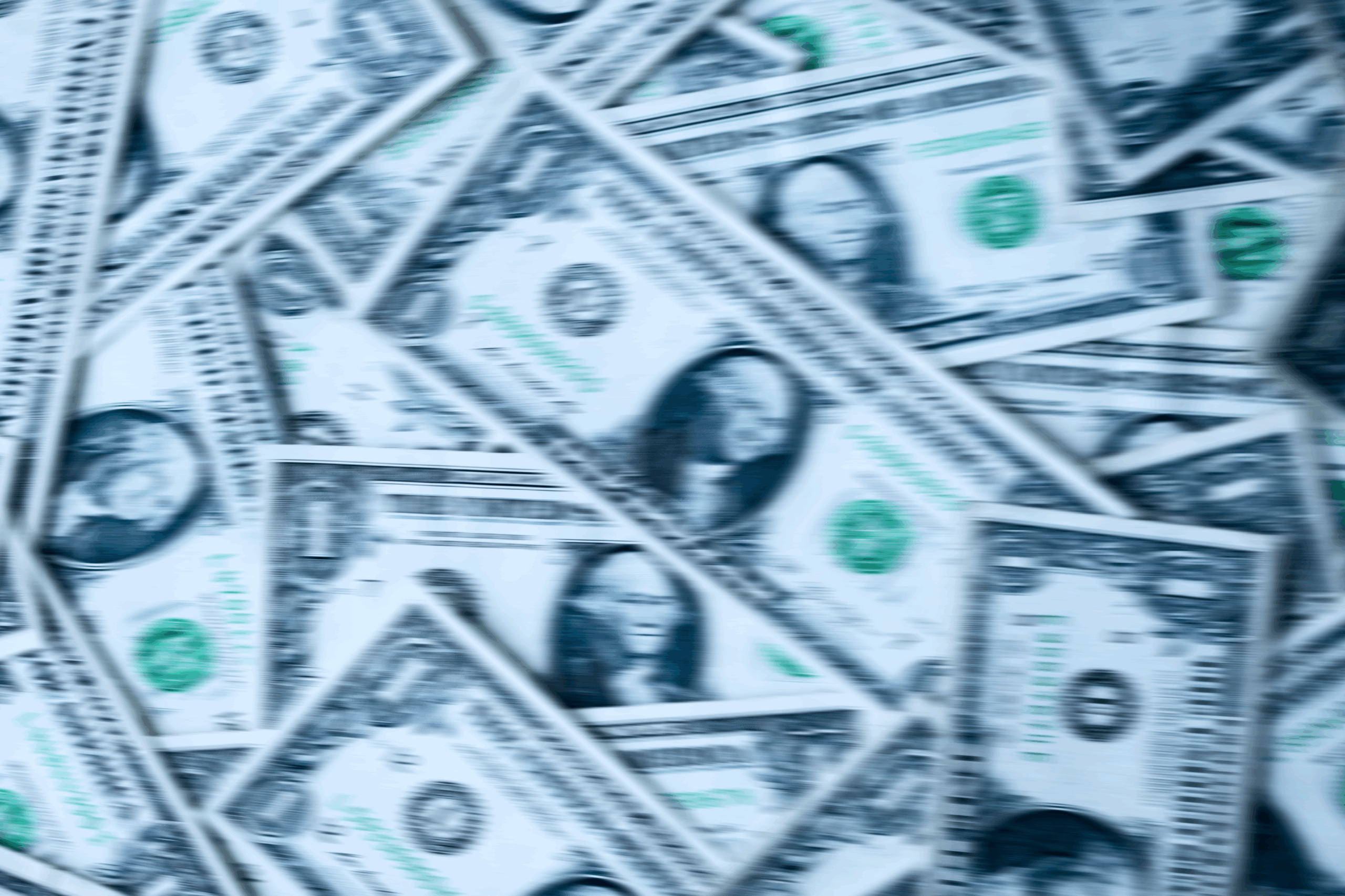Continue Reading
Biggest Finance Newsletter for Women
Join 200,000 other people interested in money, power, culture, and class.
Subscribe
The other night, my standard millennial woman stomach issues started to manifest in a new and exciting way (I’ll spare you the details, because I value your subscription). My instinct to preserve my health defeated my desire to protect my sanity from insurance company billing departments, so I headed to the urgent care down the road. On the way out the door, I grabbed the newest issue of New York Magazine in case the place was backlogged with other young women sporting chronic bellyaches. This turned out to be a case of laughably bad reading material selection.
The themed issue was full of stories about health—or rather, a lack thereof. Reading tale after tale of the medical system’s failures to properly diagnose cancer while sitting within the physical confines of a doctor’s office felt like dragging a Ouija board out of the attic and inviting some bodily cosmic doom to befall me.
While there’s a story about exhilarating breakthroughs for hard-to-treat cancers, like immunotherapy for glioblastoma, the issue is mostly full of stories that go something like this: “I felt this weird pain in my body and my doctors told me it was fine for years! Turns out I had a major, rare disease, and now it’s too late.”
>
“But at that moment, having already conceded that I was about to facilitate the loss of something irreplaceable, money felt detached, meaningless, far away.”
As I filed away new evidence of my own impending mortality with each story of life interrupted, I imagined how small and insignificant something like pErSoNaL fInAnCe must feel in light of the news that you’ve got, say, a Stage 3 diagnosis. Periodically, a post will appear in the personal finance Subreddit that describes exactly this grim outlook: I’m 35 and my doctors think I have 18 months left. Should I drain my 401(k)? The responses are always empathetic, encouraging, and congregate in the “burn it all down and go out in a flame of glory” camp. The corporeal reality of the situation thrusts the carefully honed Responsible Life Plan playbook into an embarrassing light, like an accumulation strategy caught with its pants down.
I remember getting a flash of this financial nihilism while scheduling Beandog’s euthanasia appointment. My insides were raw, and I sensed that something profound was about to take place—like I was stepping briefly into another realm. When the compassionate woman on the phone gently (and understandably!) mentioned the house call fee before we hung up, it felt preposterous, like discussing the particulars of the weather forecast while strapped to the electric chair. Normally, my money feels intimate to me; personal, a source of comfort and control. But at that moment, having already conceded that I was about to facilitate the loss of something irreplaceable, money felt detached, meaningless, far away. It’s hard to imagine how it must feel when a human life—or your own life—is in jeopardy.
By the time I was shifting uncomfortably on the crinkly paper of the exam room, I was belly button-deep in lists of WebMD symptoms (the stomachache is definitely colon cancer; no other explanation) and life expectancy statistics. I wanted to know how many people live to spend their retirement savings, a question I had never once pondered for myself, assuming I’d hit at least 90 before slowing down. Turns out that an adult woman in the United States has an 11% chance of dying before her 60th birthday. Men fare a little worse: They have a 19% chance. (Technically, the data tries to predict how many people born today will still be living 60 years from now, and out of 100,000 people, the numbers are 89,000 and 81,000, respectively.)
I’m not sure if this is how statistics actually work (someone who didn’t major in communications, weigh in), but according to the Social Security Administration in 2021, you’ve got between an 80% and 90% chance of hitting retirement age. There are a lot of variables that impact your chances in either direction—smoking! running ultramarathons!—but we don’t have total control over our odds, of course.
>
“Most people recognize that sacrificing your life savings is worth it if it means you get to keep your life.”
The relationship between our health and money is complicated. A realization that one’s life might be cut unexpectedly short by illness puts our financial plan in stark perspective, yes, but a new, out-of-pocket-maximum-shaped sinkhole yawns open underneath it, too. Most people recognize that sacrificing your life savings is worth it if it means you get to keep your life: 41% of American adults live with medical debt. 17% of that group declares bankruptcy because of it.
This is why describing healthcare as a marketplace is so hollow. A free market is a place where rational actors can consensually exchange value; where the law of competition forces a seller to make a better product at a lower price. The buyer always has the option not to transact (or to find a substitute). But I need to find out why my stomach always hurts in a different way than I want to buy a new pair of shoes.
One story in the issue described the physical and mental deterioration of a woman whose condition kept getting misdiagnosed. I imagined how hard it must be to re-enter the slot machine of the medical system over and over again, watching your bill climb higher with each pull of the lever, while your body continues to fail you. Did she quit her job? How did she keep working? I wondered, before realizing she probably needed the job to keep the insurance that fed quarters to the machine.
We’re told our private healthcare system (and the for-profit financing that powers it) maximizes our “consumer choice.” (Your choice of doctors who are “in network,” at least.) But did this woman have a rational, market-driven choice in how she sought help? Maybe a little, but not in any real sense of the word “choice.” In that impossible situation, most of us would hop into the nearest wee-woo-wee-woo bankruptcy bus and allow some private-equity-owned hospital chain to strip our checking accounts for parts, because that is the only real option.
>
“A scary medical experience can be both proof that life is short and that the UnitedHealth appeals department hold times are long.”
This is the complex duality we must navigate: You might not live to enjoy the money you’re saving, and if you do, you might need all that money and more to pay for your care. A scary medical experience can be both proof that life is short and that the UnitedHealth appeals department hold times are long.
If you’re navigating medical bills right now, I’m sorry. It comes for all of us at some point. We did an episode around this time last year about how to negotiate costs and who you can engage to help. If you’re interested in imagining how our system might improve based on the model set by countries that are crushing this problem that all societies face and earning better health outcomes as a result, we covered that in depth in early 2022.
But I have to go—I have a follow-up appointment that bears a secret cost known only to Blue Cross Blue Shield and God almighty, so expect a follow-up report in 6–18 months when the bill comes.
August 5, 2024
Paragraph
Looking for something?
Search all how-to, essays, and podcast episodes.
Explore
While I love diving into investing- and tax law-related data, I am not a financial professional. This is not financial advice, investing advice, or tax advice. The information on this website is for informational and recreational purposes only. Investment products discussed (ETFs, index funds, etc.) are for illustrative purposes only. It is not a recommendation to buy, sell, or otherwise transact in any of the products mentioned. Do your own due diligence. Past performance does not guarantee future returns.
Money with Katie, LLC.
Terms & Conditions | Privacy Policy
This Site Was Built by Brand Good Time



